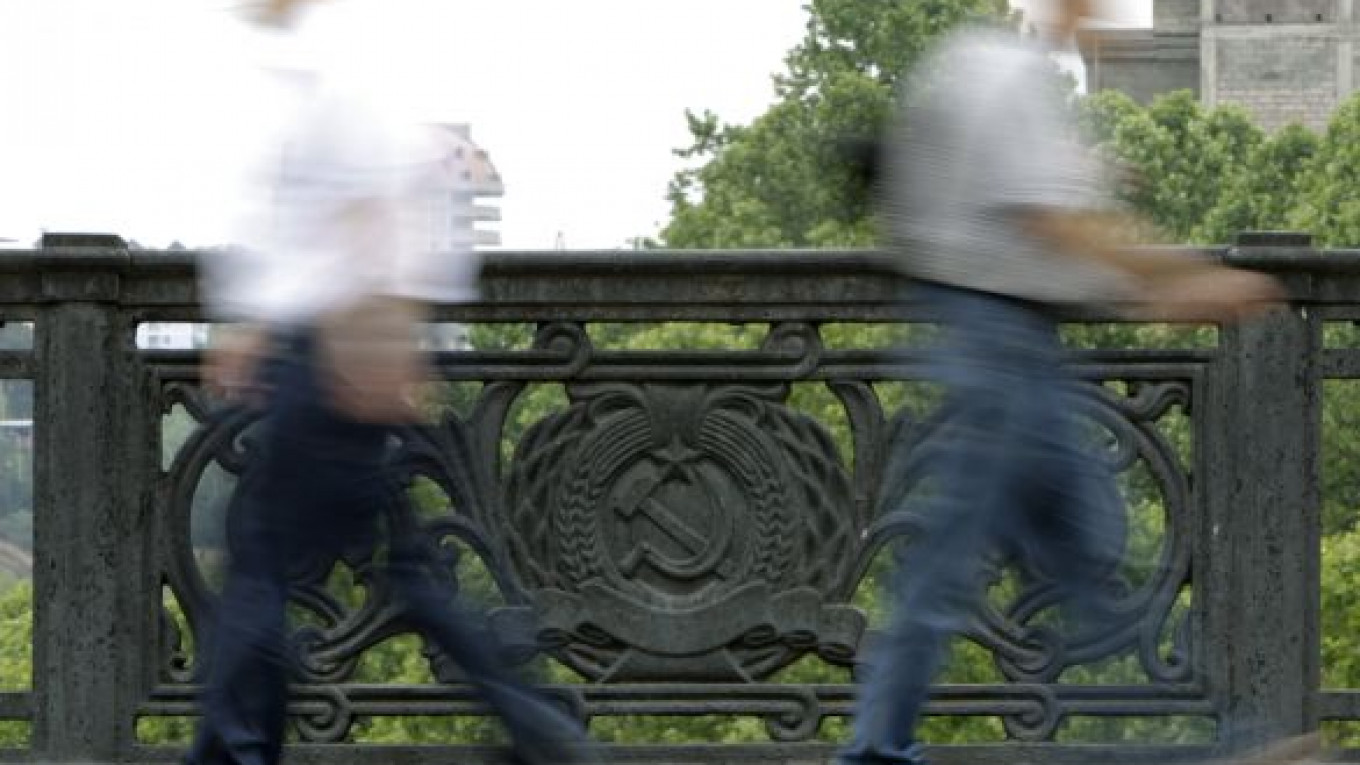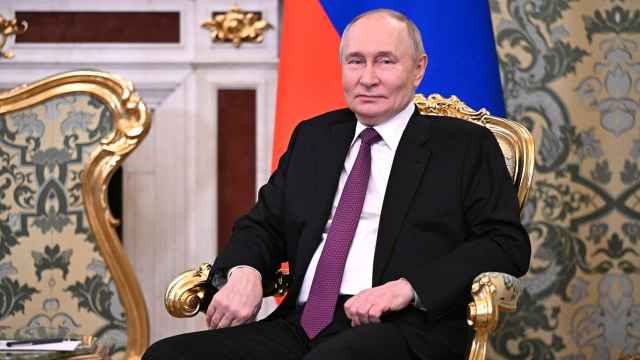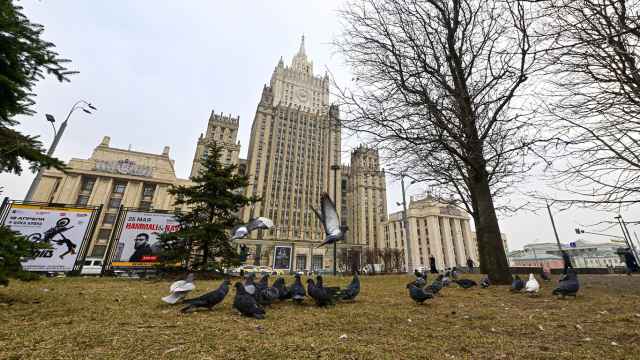TBILISI, Georgia — Georgia will destroy Soviet-era monuments and change any street names that refer to its Communist past, lawmakers decided Tuesday, passing legislation aimed at distancing the country from Russia.
"Our people have been waiting for this bill to be passed for 20 years, and I'm proud that it has been passed by this parliament," said Gia Tortladze, an opposition lawmaker who proposed the law.
The so-called Freedom Charter will set up a commission led by the Interior Ministry to identify symbols, monuments, inscriptions, street and park names "that may reflect or contain elements of Soviet or fascist ideology" and consider their removal.
The legislation will also prevent former KGB agents and senior Communist Party officials from occupying high-ranking positions in government.
The move could annoy Moscow, which accused Georgia of "trying to erase the historical memory of its people" after the authorities blew up a Soviet World War II memorial in the country's second largest city, Kutaisi, in 2009.
"Soviet symbols did nothing bad to people. It was the fault of the Communist authorities," said lawmaker Jondi Bagaturia.
Civil society expert David Gogishvili said it was important that Georgians understand their Soviet past and "if we decide to get rid of all material leftovers of the Soviet system, we may face a situation in which half of Tbilisi will be destroyed."
A Message from The Moscow Times:
Dear readers,
We are facing unprecedented challenges. Russia's Prosecutor General's Office has designated The Moscow Times as an "undesirable" organization, criminalizing our work and putting our staff at risk of prosecution. This follows our earlier unjust labeling as a "foreign agent."
These actions are direct attempts to silence independent journalism in Russia. The authorities claim our work "discredits the decisions of the Russian leadership." We see things differently: we strive to provide accurate, unbiased reporting on Russia.
We, the journalists of The Moscow Times, refuse to be silenced. But to continue our work, we need your help.
Your support, no matter how small, makes a world of difference. If you can, please support us monthly starting from just $2. It's quick to set up, and every contribution makes a significant impact.
By supporting The Moscow Times, you're defending open, independent journalism in the face of repression. Thank you for standing with us.
Remind me later.






